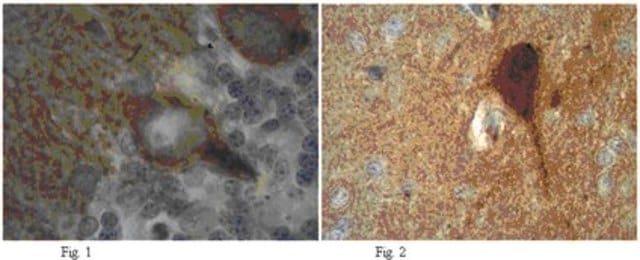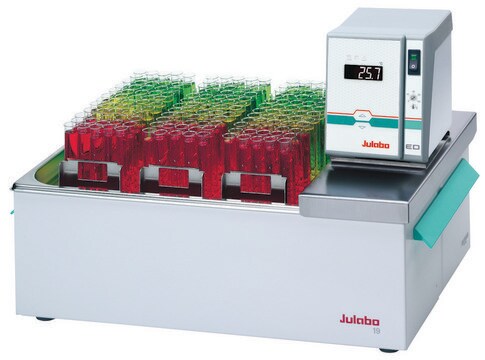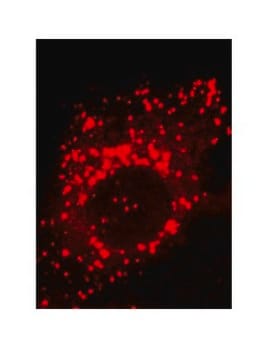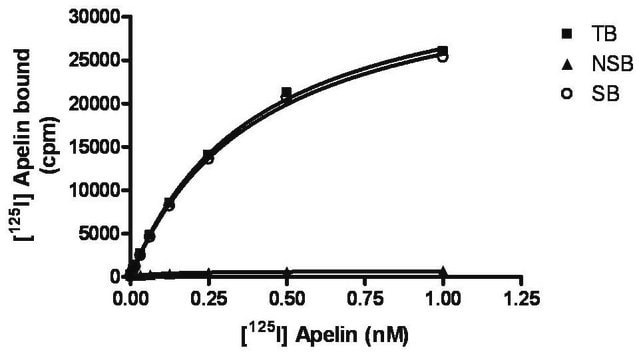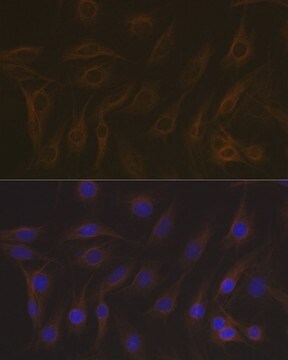MABS1300
Anti-asparagine synthetase Antibody, clone Z5808
clone Z5808, from mouse
Synonyme(s) :
Asparagine synthetase [glutamine-hydrolyzing], Cell cycle control protein TS11, Glutamine-dependent asparagine synthetase
About This Item
Produits recommandés
Source biologique
mouse
Niveau de qualité
Forme d'anticorps
purified immunoglobulin
Type de produit anticorps
primary antibodies
Clone
Z5808, monoclonal
Espèces réactives
human
Technique(s)
ELISA: suitable
flow cytometry: suitable
immunocytochemistry: suitable
immunohistochemistry: suitable (paraffin)
western blot: suitable
Isotype
IgG2aκ
Numéro d'accès NCBI
Numéro d'accès UniProt
Conditions d'expédition
ambient
Modification post-traductionnelle de la cible
unmodified
Informations sur le gène
human ... ASNS(440)
Description générale
Spécificité
Immunogène
Application
Immunocytochemistry Analysis: A representative lot detected asparagine synthetase in Immunocytochemistry applications (Kusano-Arai, O., et. al. (2012). Hybridoma (Larchmt). 31(5):325-32).
Flow Cytometry Analysis: A representative lot detected asparagine synthetase in Flow Cytometry applications (Kusano-Arai, O., et. al. (2012). Hybridoma (Larchmt). 31(5):325-32).
ELISA Analysis: A representative lot detected asparagine synthetase in ELISA applications (Kusano-Arai, O., et. al. (2012). Hybridoma (Larchmt). 31(5):325-32).
Western Blotting Analysis: A representative lot detected asparagine synthetase in Western Blotting applications (Kusano-Arai, O., et. al. (2012). Hybridoma (Larchmt). 31(5):325-32).
Qualité
Immunohistochemistry Analysis: A 1:50 dilution of this antibody detected asparagine synthetase in human breast cancer tissue.
Description de la cible
Forme physique
Autres remarques
Vous ne trouvez pas le bon produit ?
Essayez notre Outil de sélection de produits.
Code de la classe de stockage
12 - Non Combustible Liquids
Classe de danger pour l'eau (WGK)
WGK 2
Point d'éclair (°F)
Not applicable
Point d'éclair (°C)
Not applicable
Certificats d'analyse (COA)
Recherchez un Certificats d'analyse (COA) en saisissant le numéro de lot du produit. Les numéros de lot figurent sur l'étiquette du produit après les mots "Lot" ou "Batch".
Déjà en possession de ce produit ?
Retrouvez la documentation relative aux produits que vous avez récemment achetés dans la Bibliothèque de documents.
Notre équipe de scientifiques dispose d'une expérience dans tous les secteurs de la recherche, notamment en sciences de la vie, science des matériaux, synthèse chimique, chromatographie, analyse et dans de nombreux autres domaines..
Contacter notre Service technique

